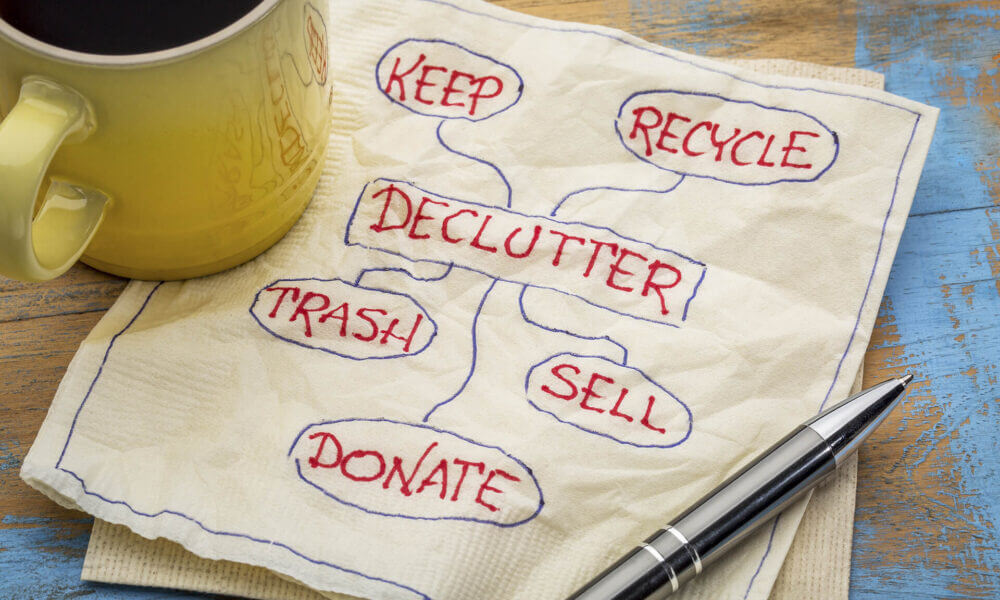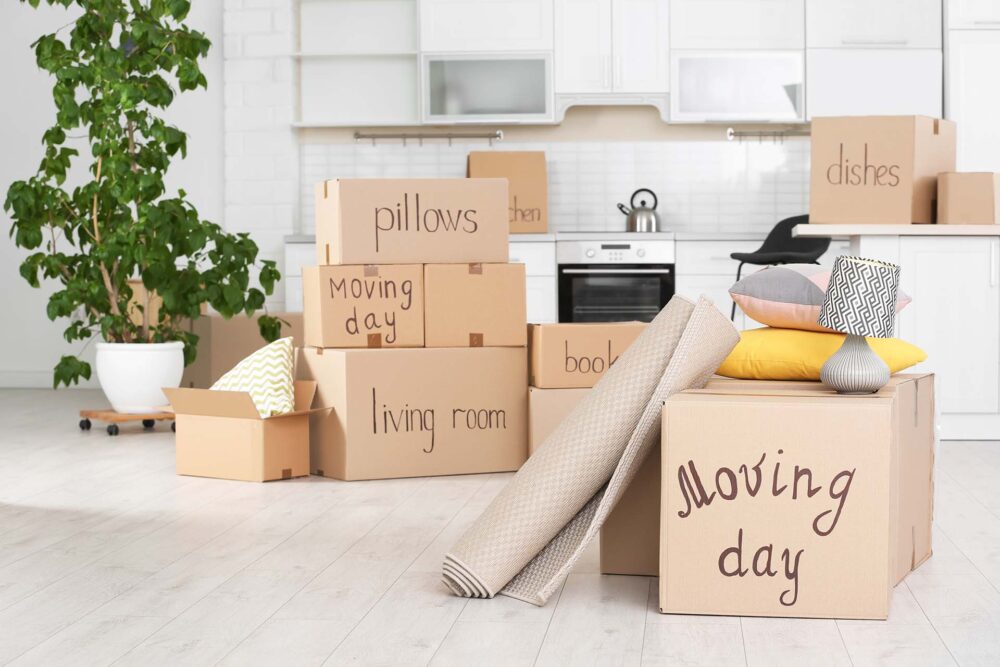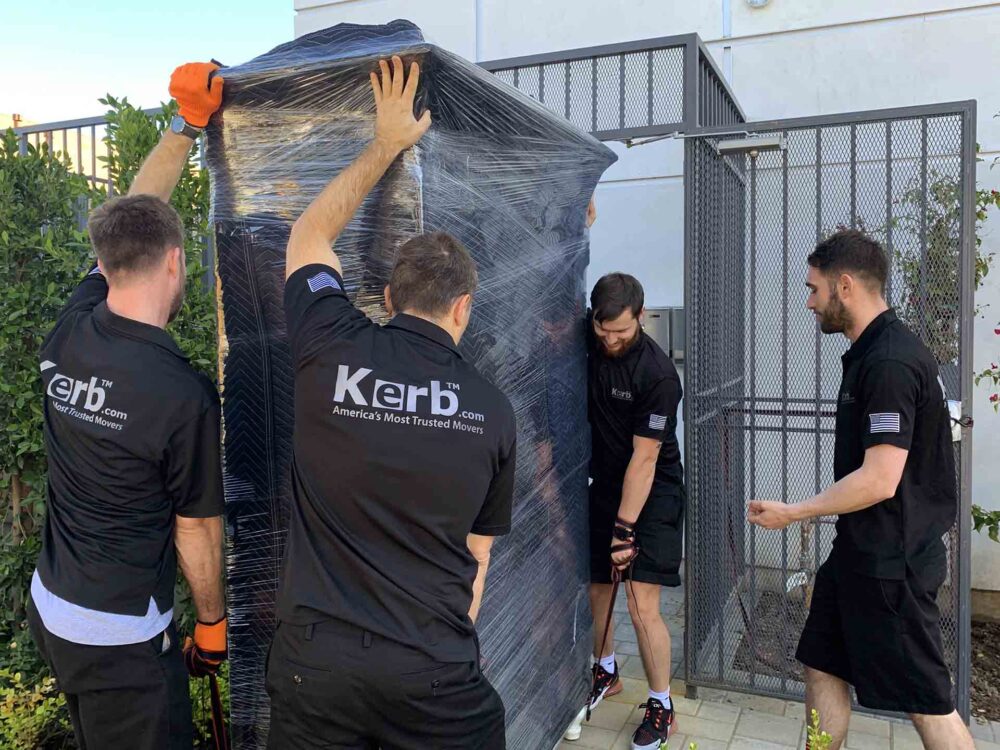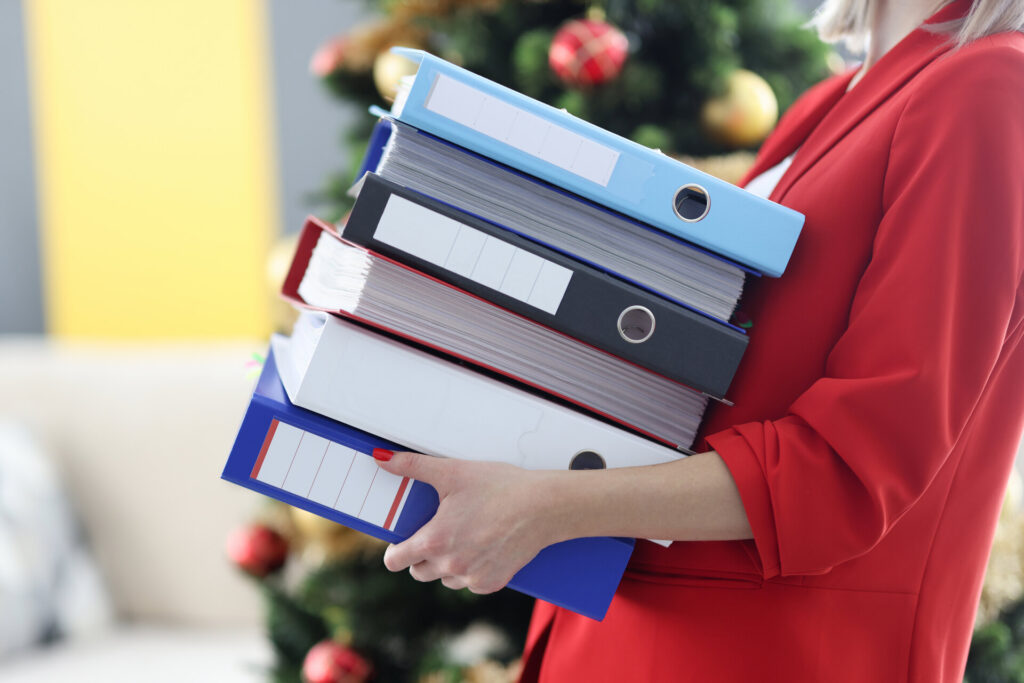If you close your eyes and picture a new home, you can almost see where each item will go. You know what items will be stored in the same box. But have you considered what not to pack when moving? This question is crucial as it shapes the efficiency and ease of your whole journey. Knowing what to get rid of when moving ensures that only the essentials reach the future abode.

What Not to Pack When Moving
When relocating to another state, you need to know things to throw away when moving. Begin by decluttering for a move and asking long-distance movers what items they won’t relocate. Items to leave behind usually include hazardous materials, perishables, plants, bulky furniture, duplicates, and rarely used gadgets.
For personal and sentimental trinkets, it may be better to transport them personally. Before the big day, conduct a last-minute check to ensure nothing is overlooked. Hiring a professional cross-country moving company can streamline the whole process, ensuring an efficient relocation and a smooth experience.
Understanding the Concept of Only Taking Essential Belongings
Embarking on a cross-country journey starts with recognizing the importance of limiting yourself to only what matters. This principle focuses on a minimalist approach, encouraging you to evaluate the true necessity and value of each item in the current home.
By prioritizing relocation essentials, you significantly streamline the whole process, reduce costs, and facilitate a smoother and stress-free transition. This initial step is about adopting a mindset geared towards efficient moving planning. It ensures that every item has a role in the future living space.
The Art of Decluttering Before a Move
Decluttering and downsizing before a move are crucial first steps. The relocation benefits of minimizing belongings before packing are immense. It makes this journey more manageable, reduces moving costs, and helps you start fresh in a new home. Here’s a list of strategies for sorting items:
- Keep pile – identify the items that are worth keeping, essential to your daily life, or have significant sentimental value.
- Sell pile – host a garage sale or list items online to sell things that have value. This can also supplement your relocation budget.
- Donate pile – give away items that are in good condition but no longer serve a purpose in your life. Donate them to charities such as the Salvation Army, or local community centers.
- Discard pile – responsibly dispose of stuff that is no longer usable or has reached the end of its lifecycle.

These Are the Categories of Items Best Left Behind
Identifying specific categories of things to leave behind ensures that your efforts and resources are invested in transporting possessions that truly matter. It’s about making informed choices that align with safety regulations, practicality, and the emotional significance of your belongings. Let’s delve into why each category is important to consider and how navigating these decisions can lead to a more streamlined relocation experience.
Moving Hazardous Materials Is Never Permitted
Many common household objects are considered dangerous for transport due to their flammable, corrosive, or explosive nature. Examples include aerosol cans, paint, batteries, and household cleaners.
Movers have strict guidelines and restrictions on these materials to ensure safe transport. Understanding and adhering to these restrictions is crucial to avoid last-minute complications.
Perishable Food and Plants Pose a Challenge During Relocation
Perishable food and plants are particularly challenging to move due to their sensitivity to temperature changes and the risk of spoilage or damage. Before the move, consider consuming, donating, or giving away perishables. For plants, rehoming them with friends or family can ensure they continue to thrive, as relocation stress can be detrimental to their health.
The Burden of Items That Might Not Be Worth the Move
The cost of moving heavy furniture and appliances can often exceed their value, especially if they’re not a perfect fit for your new home. Assess their significance and practicality. Selling or donating things can be a perfect chance to start fresh.
Leave Behind Duplicates and Rarely Used Gadgets
Kitchen items like gadgets, tools, and electronics that are rarely used or have duplicates contribute to unnecessary clutter and overall costs. Adopting a minimalist approach by only taking things you frequently reach out for can make everything more manageable. This strategy will simplify unpacking the kitchen immensely.
Important Documents, Jewelry, and Heirlooms Are Best Kept With You
Irreplaceable items such as important documents, jewelry, and family heirlooms should be personally transported to ensure their safety. Preparing a personal bag for these things can provide peace of mind, knowing that your most valuable possessions are within reach during transit. Think about digitizing your documentation and storing it on a hard disc or cloud. This way, you will have a backup in case of theft or loss.
Additionally, think about appraising valuables. Appraisals provide a certified document that details their worth, which is crucial for insurance purposes. In the event of loss or damage, having a recent appraisal can simplify the claim process, ensuring you are adequately compensated.
Evaluate the Need to Relocate Items With Sentimental Value
While some objects are irreplaceable, others can be memorialized in different ways, such as through photos or digital copies. This approach allows you to preserve memories without physically transporting every item, simplifying the transition and helping you focus on the essentials.

Last-Minute Checks and Balancing Act
As moving day approaches, conducting a final walkthrough of your home is crucial. This last-minute check ensures that you don’t forget to pack something and provides an opportunity to reassess each room. If you have a change of heart about something, ensure that the items left behind are properly disposed of or set aside for donation or sale.
Auto Shipping
Are you looking for the best auto shipping company near you? Give Kerb a call, ask for a free quote and book our top-notch car transportation services.
Storage Services
Are you looking for storage services in your area? Kerb offers some of the best storage facilities in the country!
Local Moving
Are you planning on relocating locally? There are so many moving companies out there that offer local moving services.
The Role of Professional Cross-Country Movers in Decision-Making
Professional white glove movers play a pivotal role in long-distance relocations. They can guide you on what is practical to relocate and what you should consider leaving behind or replacing upon arrival.
With their white glove moving service, movers can help you avoid common mistakes and pitfalls, saving you money and precious time. They know how to pack efficiently, reduce the risk of damage, and ensure your belongings are shipped safely.
Hiring a reliable company is a pivotal moment in this process. Kerb Mover offers comprehensive white glove moving services designed to address all of your requirements. Our experience and expertise can provide valuable insights into the logistics of handling specific objects, offering solutions that might not be immediately obvious.
Furthermore, leveraging professional packing services offers numerous benefits. Our team will ensure that your belongings are securely stored for the journey. We use the right materials and techniques, reducing the risk of damage during transit.
Kerb Movers also offers insurance options to protect your belongings from the rigors of moving, giving you peace of mind. Our involvement can significantly simplify your relocation, allowing you to focus on settling into the new home and environment.

Book Our White Glove Moving Company for a Balanced and Smooth Relocation Experience
Planning a relocation and deciding what won’t make the cut to the new home can be emotionally taxing. That is why it’s important to leave the rest in the hands of capable professionals and concentrate on starting clutter-free and anew.
Kerb Movers are more than capable of making the long-distance moving process smooth and stress-free. We have the tools and knowledge to handle and transport your belongings safely to their destination. Contact us today, and let us be your partner on this exciting adventure.
Frequently Asked Questions
Why Can't I Pack All Types of Items When Moving?
Not all items are suitable for relocation due to safety, legal, and practical reasons. Hazardous materials, for instance, pose significant risks during transport and are often prohibited by law. Items like flammable liquids, corrosive substances, and explosives require special handling.
Additionally, movers may refuse to transport perishable foods and plants due to the risk of spoilage and pest infestation, which could compromise the safety and cleanliness of the relocation truck and other belongings.
How Should I Deal With Items Movers Won't Transport?
For items that movers won’t transport, consider alternative solutions. Hazardous materials should be properly disposed of according to local regulations or given to neighbors, friends, or community centers that can use them.
For perishable foods, plan to consume them before the relocation or donate to local food banks. If movers cannot transport certain plants or bulky items, you might need to give them away or sell them. For highly valuable items like heirlooms or personal documents, it’s best to transport them yourself to ensure their safety.
What Should I Do With Perishable Food Before Moving?
To minimize waste, plan your meals around using up perishables in the weeks leading up to relocation. Rest can be donated to local food banks or given to neighbors, friends, or family members. This approach helps reduce waste and can be a helpful parting gesture to those in your community.
Can I Move My Plants Across State Lines?
Before the relocation, check the regulations of your destination state regarding plant transportation. Some states require inspection certificates for certain plant species, and others may prohibit the entry of plants altogether. If your plants are permitted, ensure they are properly prepared for the journey, considering their need for sunlight, water, and stable temperatures.
What Items Are Considered Too Bulky or Heavy to Be Worth Moving?
Evaluate the sentimental and monetary value of these objects against the cost of relocating and setting them up in the new home. In many cases, selling or donating them and purchasing new ones after relocating can be more practical and cost-effective.
How Can I Decide Which Duplicate Items to Pack?
Start by assessing each item’s usage frequency. Keep the ones you use regularly and are in good condition. For kitchen gadgets and tools, consider their functionality. If two items serve the same purpose, pack the one of higher quality or the one you prefer using.
Additionally, think about the space and layout of the future residence. If you’re relocating to a smaller space, this might naturally limit what you can take. For things with sentimental value, choose those that hold the most meaning to you.
What Are the Best Practices for Moving Valuable Jewelry and Documents?
For relocating jewelry, use a specialized box with individual compartments or wrap each piece in a soft cloth and place them in a hard case to prevent damage. For added security, consider carrying them with you instead of packing them with other belongings.
For documents, gather all critical paperwork and place it in a waterproof and fireproof file organizer or briefcase. It’s advisable to keep documents such as birth certificates, passports, financial records, and insurance policies on you. Additionally, making digital copies of important documents can provide an extra layer of security, ensuring you have access to them even if the physical copies are misplaced.








